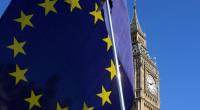 Thousands of people attended memorial services across Melbourne to mark the centenary of the Armistice ending World War One, shrugging off heightened security after Friday's attack in Australia's second largest city which police branded terrorism.
Thousands of people attended memorial services across Melbourne to mark the centenary of the Armistice ending World War One, shrugging off heightened security after Friday's attack in Australia's second largest city which police branded terrorism.
More people than expected attended the ceremony at the Shrine of Remembrance, keen to show they were not bowed by Friday's stabbings of three civilians, one fatal, by Islamic State sympathiser Hassan Khalif Shire Ali, 30.
"Carry on," Kate Mansell, the mother of a toddler and a baby in a stroller, told Reuters.
"Life goes on," said Alison Brett, visiting Melbourne from Australia's Northern Territory.
Her daughter, Belinda, who lives near the shrine, said she was not worried about being in public after Friday’s attack.
"You can’t let that stop you," she said.
At the shrine, across the river from the scene of the Bourke Street attack, an unobtrusive but increased police presence guarded a crowd of about 4,000.
Melbourne's Pellegrini Espresso Bar, full to overflowing with floral arrangements left by mourners, remained closed on Sunday, as the public placed flowers on the pavement outside and wrote tributes on sheets of notepaper, taped with their sorrow next to the front door.
The cafe was owned by popular 74-year-old restaurateur Sisto Malaspina who was stabbed to death after going to help Shire Ali, mistakenly thinking the attacker's car had broken down, according to witnesses quoted by ABC News.
Shire Ali had set the car, full of gas cylinders, alight, but it did not explode.
PASSPORT CANCELLED
Victorian Police Chief Commissioner Graham Ashton said on Saturday the attack was terrorism inspired by Islamic State.
Police said Shire Ali had his Australian passport cancelled in 2015 after an intelligence report that he planned to travel to Syria but an assessment was made that while he had radical views, he posed no threat to national security.
Home Affairs Minister Peter Dutton defended authorities who he said had 400 open investigations and needed information from the public to stop spontaneous actions.
"The police can't contemplate every circumstance," he told reporters in Brisbane.
Dutton said encryption technology makes it difficult for authorities to gather intelligence.
"That is why it is important for us to get as much information from the imams, from spouses, from family members, community members, council workers, people that might be interacting with those that might have changed their behaviours, where they think they've been radicalised," he was quoted by AAP as saying.
Werribee Islamic Centre Imam Isse Musse, a friend of the attacker's family for 25 years who had not seen Shire Ali for 14 years, said the family told him Shire Ali was mentally ill.
"They say he had a mental problem," he told Reuters.
"If someone is mentally ill they can be a prey for any propaganda, any misinterpretation ... but what can we do? The family worked hard to take him to the doctor to be diagnosed but he said no and wouldn't co-operate.
"We are very disappointed with the event ... we extend our sympathy to everyone who was made a victim."
In the capital, Prime Minister Scott Morrison, Chief of Defence Force General Angus Campbell, other military personnel and diplomats attended a Remembrance Day service at the Australian War Memorial.
"As we commemorate the centenary of the Armistice and cast our minds back over the years, we know too well the deep scars of war and long to prevent them from touching an Australian soul," Morrison said in a televised speech.


